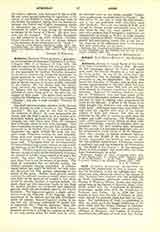
Abbe d’Aubignac Francois Hedelin
Grammarian, poet, preacher, archeologist, philologist (1604-1676)

Aubignac, FRANCOIS HEDELIN, ABBE D’, grammarian, poet, preacher, archlcologist, philologist, b. at Paris, August 4, 1604; d. at Nemours, July 27, 1676. He took his name from an abbey that was granted him. After completing his classical and theological studies, he was appointed by Cardinal Richelieu instructor to the latter’s nephew, the young Duc de Fronsac, to whose gratitude he owed a pension of 4,000 livres. This appointment, as well as his own inclination, led him to devote his time to literary studies, especially to the classics. He was drawn into the controversy between the ancients under the leadership of Boileau, and the moderns under Perrault, his philological views being used by the latter for the support of their cause. The drama had a special attraction for d’Aubignac, who wrote not only a tragedy, “Zenobie”, but also a work entitled “Pratique du Theatre“.
The abbe interests modern scholars chiefly because of his attitude on what is known as the “Homeric Question”. He was one of the first to doubt the existence of Homer; he even propounded the theory that the Iliad is made up of a number of independent ballads gathered and put together by a compiler not very much later than the supposed date of Homer, whom he took to be Lycurgus. This first compilation, however, was not final, as the poem continued to be handed down by the recitation of rhapsodists who again divided the work into separate songs, Pisistratus making the final redaction. These views were based partly on statements in the Greek historians, partly on reasons drawn from the poem itself. D’Aubignac dwelt on the impossibility of transmitting so long a poem without the aid of writing which he, as did Wolf, believed to be unknown to Homer. He drew arguments from the construction of the epic, its lack of unity and its multiplicity of themes, the quarrel of Achilles being treated of in only a few books. The name Iliad he considered a misnomer, since Troy is not the subject of the story. The Iliad, he contended, has no suitable ending; the reader’s curiosity remains unsatisfied. It contains many cantos that might be omitted, not only without detriment but with positive advantage to the action of the story. Besides these general considerations, he adduced numerous details which constitute flaws in the poem as we possess it, but which would be entirely justified in separate ballads. In short, there are few objections made to the Iliad by modern scholars on aesthetical and rhetorical grounds which are not touched upon by the French humanist. The arguments against a single author, drawn from the character of the language, the intermixture of the dialects and the like, d’Aubignac could not present, because linguistic studies in his day had not advanced sufficiently to enable him to appreciate the “Homeric Question” from this point of view. Though the abbe had on many occasions set forth in writing his opinions on Homer, it was only shortly before his death that he wrote an extended work on the theme, entitled “Conjectures academiques, ou dissertation sur l’Iliade”. He died before he was able to make the final revision, and it was not published until 1715, forty years after his death. The work was known to Wolf, and though the French scholar anticipated many of his own views he does him scant justice. A German critic declares that d’Aubignac’s arguments are substantially as strong as Wolf’s, in some respects stronger, and that if Wolf’s “Prolegomena” produced greater and more lasting results, this is due less to the character of his arguments than to the greater skill with which they are set forth.
CHARLES G. HERBERMANN

